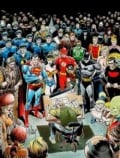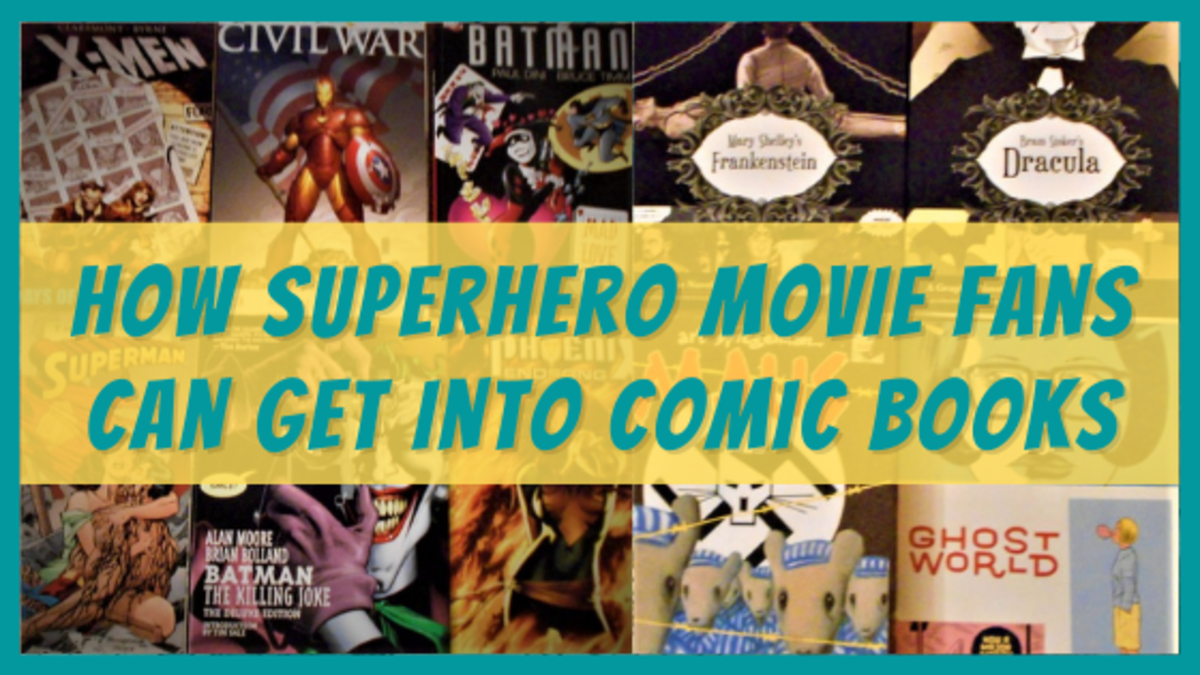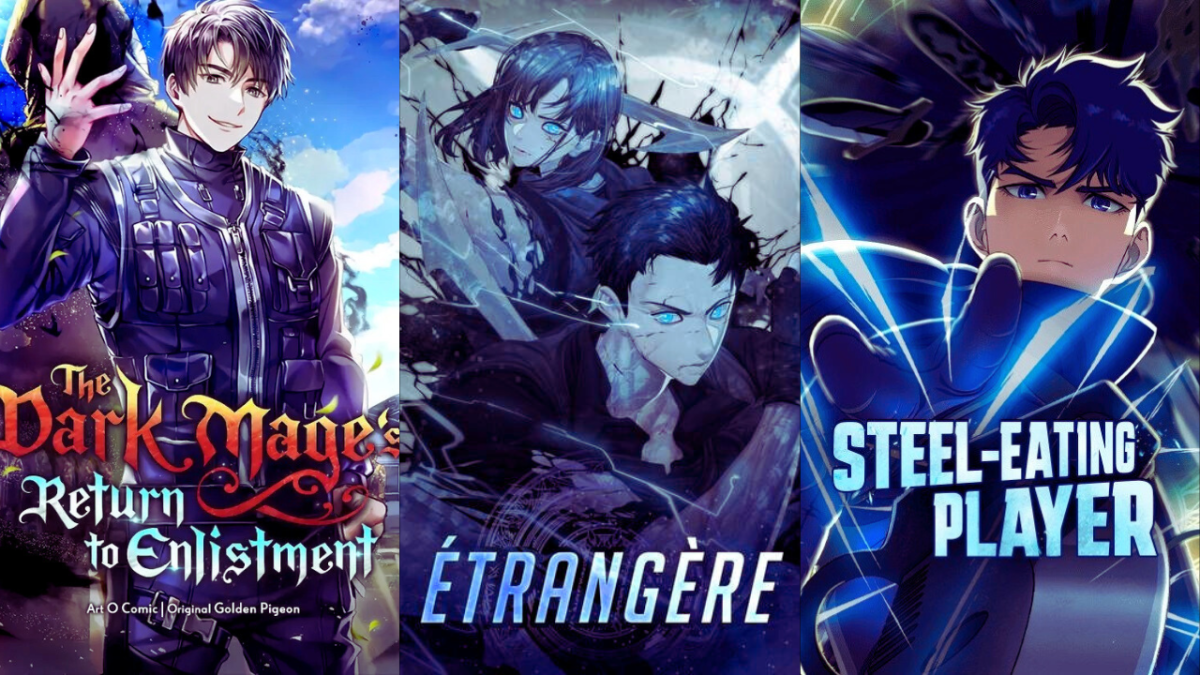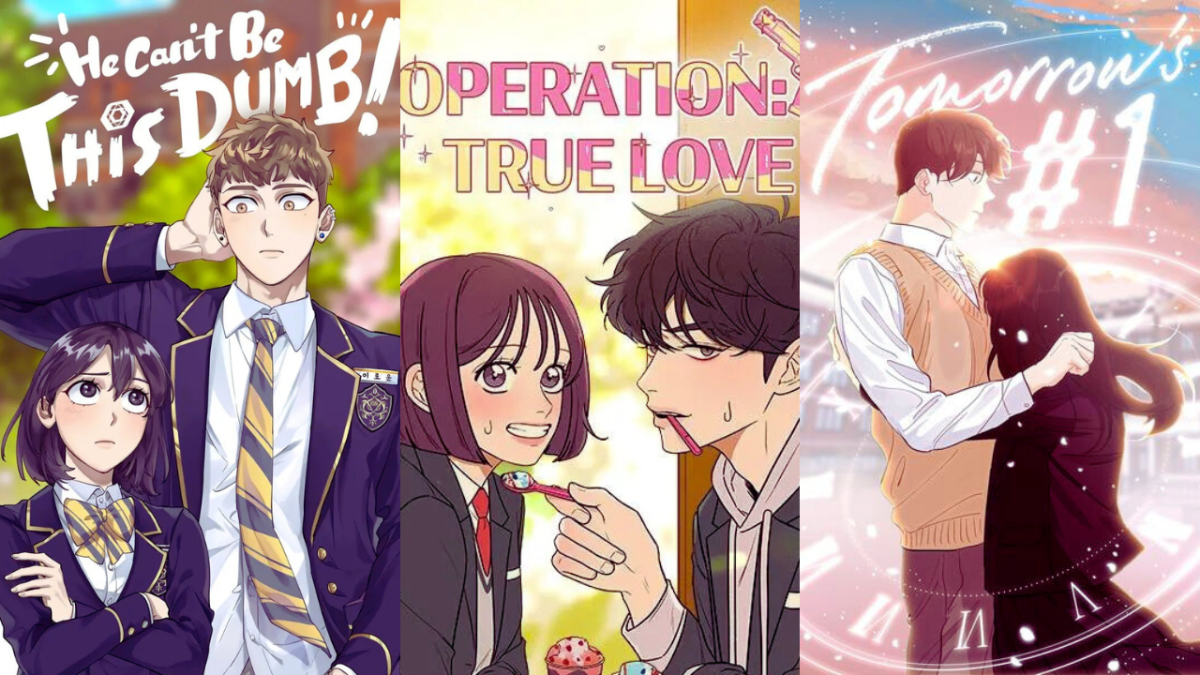A Fanboy's Bill of Rights
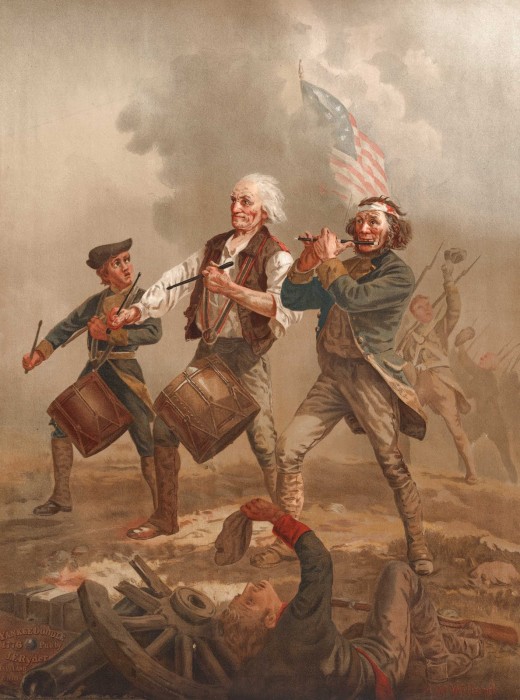
Once upon a time, tales of fantastic fiction such as sci-fi and fantasy were few and far between. The occasional book from certain authors like H.G. Wells, the rare short story from the likes of Hugo Gernsback were all that was out there. There was no section of the book store or library and if you had developed a taste for such rareified reading fare, your best bet was to stick to magazines devoted to science fact and hope that a bit of fiction popped up from time to time or that an ad appeared offering the latest book of space travel stories. Science fiction was not really considered a genre of its own at first, but rather a short-hand or vehicle for allegory (i.e. "The space ship in the story is not really a space ship, it's a metaphor for man's journey through life!"). Fantasy was even less defined, until Robert E. Howard created Conan the Barbarian and a few years later J.R.R. Tolkein introduced the world to Hobbits. Super-heroes? The word had been around for a while, sometimes applied to fictional characters and sometimes to real people, any of whom represented heroic figures of a superior order. Sherlock Holmes was clearly a superman among men in his stories, but we wouldn't start seeing truly flamboyant superhumanity until Tarzan of the apes came along in 1912. By that point, the die was cast. Fantastic fiction was beginning to have its own following of readers who specifically sought out tales of futuristic science, otherworldly magic, blood-curdling terror, and physically impossible derring-do.
In 1926, a remarkable thing happened. Hugo Gernsback started Amazing Stories magazine. It was just one among many of the inexpensive, disposable pulp magazines of its day but it was the first publication devoted entirely to science fiction (which Gernsback referred to at the time as "scientifiction"). Gernsback, whatever else he may have been (and quite a few folks knew him as a cheat and a swindler), was a visionary. He saw sci-fi as a doorway to education and enlightenment; he preferred what is now called "hard" sci-fi, featuring stories with their scientific principles grounded in reality as nearly as possible. His readership quickly demonstrated that they preferred lighter entertainment and more fantastic concepts, and those preferences shaped much of the magazine's future, as well as the trends of the genre in general. It was these readers, though, who really brought us to where we are today. See, Gernsback published a column in Amazing Stories featuring letters written by readers. This not only gave other readers insight into the thoughts and opinions of their fellow sci-fi fans, it also gave them their mailing addresses. Readers contacted each other and started circles of correspondence (like an e-mail ring but with paper, you young whipper-snappers), which then grew into the first fan clubs. Again, the die was definitely cast, because sci-fi fandom exploded from that point on. Even the stereotype of the sci-fi fan as a nebbish intellectual with no athletic prowess and limited social skills seemed to crop up pretty early and although there were female fans and writers, they were far more rare than today.
I am a fanboy. I am the cultural heir of the generation of Gernsback. I grew up on rocket ships, caped crusaders, swashbuckling, and good versus evil locked in a battle to the death. You know what else? I have rights, dammit!
Those of you who have read my reviews of movies, comics, books, and TV shows or my recent "Manifesto of a Writer and Critic" have no doubt caught a tone of frustration and disappointment in some of my comments. For those who have not yet witnessed this, please take a moment to read my review of the the movie Green Lantern. Anyone who knows me on Facebook can attest to the fact that I am both vocal and verbose on the subject of quality in comics and sci-fi, and particularly about my opinions of the lack of quality in many of the products of Hollywood. This wil be my first attempt to codify my objections. This is by no means a complete list, and I reserve the right to amend it just like the Constitution. Do not be surprised if there are sequels.
First and foremost, we as fans have a right and an obligation to stand up for ourselves and the media that we love. Like it or not, creators and fans share a weird, symbiotic relationship and one cannot exist without the other. George Lucas may own the rights to the Star Wars franchise, but we own the rights to our feelings of wonder and loyalty to that franchise and we do have the right to object when he alters his original material. We also have the right to complain when a comic book publisher revisits earlier classic story lines and retroactively alters them to have occurred differently or to have a different meaning or significance. This can be done skilfully and tastefully by a talented writer, but it's usually performed with all the subtlety and nuance of a drunken brain surgeon wielding a soldering iron. We have the right to cling to our cherished stories and characters and, if necessary, to defend them against the dangers of being savaged by either commercial influences or by the rampaging egos of editors, writers, and directors. If it isn't broken, then it doesn't need to be fixed.
This doesn't mean that comics and sci-fi should be stuck churning out the same carbon-copy drivel year after year for fear of upsetting the delicate sensibilities of thousands of fans who might freak out and start screaming incoherently at any hint of change. It does mean that changes should only be made with consideration given to the loyalty of the fans, and to the fact that without the devotion (and money) that they have given freely, a particular character or franchise would never have seen the light of day in the first place. It does not mean that you should conduct a survey of the popularity of an idea before you execute it, but particularly in these days of worldwide, instantaneous communication you should at least put your finger on the pulse of your fanbase before you fly the plane into the side of the mountain.
We have the right to some integrity and some resolution in our stories. Much of what we consume was originally conceived as cheap, disposable entertainment mainly marketed towards younger males. Few people ever thought that anyone who picked up a particular pulp magazine or comic book would later pick up another one looking for any sort of consistency with the first one, but various writers and fans over the decades have established the idea of "continuity." In other words, what was real in one story is still reality for the characters in later, connected stories. Continuity became a huge mess after years and years of stories stacked on top of each other, many of which had been contradictory simply because the publishing pace was so fast that editors simply couldn't keep complete control over every element of the stories and characters.
Nonetheless, in those days of ten-cent throwaway dreams, there was still an integrity. There was an unspoken agreement: we would suspend our disbelief, and they would reward us for it. If a character died in a comic back then, and they were going to be brought back, it usually happened by the end of the same issue because single-issue comics were self-contained stories. A two-part cliffhanger was one ring-tail doozy of a story. We suspended our disbelief that the character had died and wasn't coming back, and they gave us a good story for our trouble with a satisfying ending. Now, a character dies and there is no suspension of disbelief. We know they're coming back one way or another; it's become one of the jokes of the industry. There used to be a few permanent dead people in comics, like Captain America's original sidekick, Bucky and Jason Todd, the second kid to become Robin after the original outgrew the role. Not anymore; all bets are off. Nobody stays dead, so when somebody gets killed nobody really cares. We deserve better. The only way to reboot this problem is to declare a moritorium on character deaths until the unpleasant memory has faded.
We have the right to expect the same things that other fans receive. While I myself am not a fan of soap operas or romance novels, look at them for an example. Fans can keep coming back and getting their fix year after year and get exactly what they want. There are one-shot romance novels by one-shot authors who are never heard from again (at least not under the same name) and then there are ongoing series the cover multiple volumes and spin off characters into other, newer series. Daytime soaps last for decades, revolving around the same story tropes again and again and the fans gobble it up. Nobody is trying to "reinvent" the romance novel or give soap fans "something they've never seen before." I daresay that an attempt at a major motion picture adaptation of All My Children would not only fall flat on its face at the box office, it would be booed by fans before it got out of preproduction.
We have the right to some respect from Hollywood. If they can't get it right, they shouldn't be touching our stuff. I cannot say ths enough. This is a double-edged sword, however. If we want them to stop messing up our favorite books and comics when they adapt them, then we have to stop forking over money every time the movie studios crap out another big-budget disaster. The only comic movie I can think of that failed completely on its own merits was director Ang Lee's version of The Hulk. If we want better superhero and sci-fi movies, we have to make that happen more often. Green Lantern was considered kind of a flop, but not nearly as big of one as it deserved to be. If the reboot of the Spider-Man franchise succeeds, I'm going to be very disappointed with everyone.
If they can't make enogh money making bad movies, then they'll either make fewer of them or they won't make them at all. Whenever I complain about Hollywood's treatment of source material, or about fans gullibly swallowing every piece of trash produced, usually some discordant voice rises from the angry mob to inform me that if we stop spending money on comic book movies, they might not make any more. If we complain too much, then Hollywood might just go away and never come back to our world.
So what?
Are we really better off because now a whole generation of kids who have never picked up a comic book think they know the history of the X-Men, or because teenaged girls who have no idea what they're even wearing are flouncing around in Supergirl babydoll shirts? How is this an improvement? I recently participated in a discussion on Facebook debated the pros and cons of a new movie adapting the old pulp adventure hero Doc Savage, who was sort of a prototype for the early Superman and Batman characters as well as non-comic heroes like James Bond and Indiana Jones. One of the arguments in favor of a Doc Savage movie was that it would supposedly bring people back to the source material and inspire a greater interest in original pulp fiction. I have to disagree; if anything, the opposite might happen. Comic book sales peaked in the early 1990s, riding a wave of popularity that was at least partly created by the release of Tim Burton's Batman in 1989 (as well as many other complex factors within the industry that don't bear repeating at this point). Right now, however, with comic book movies coming out regularly and scoring huge box office returns and on the eve of the Avengers, the first movie to tie together multiple heroes from their own solo movies, comic book sales are near an all-time low. Best-selling comics used to move millions of issues per month. Today, a comic that sell ten-thousand a month is doing well. Yes, there's been a cultural move away from print media and newspapers and magazines are feeling it even worse than comics, but the point is: the popularity of comic book franchises in movies does not equal new readers. If anything, an average moviegoer might very well pick up a comic and wonder why it does not at all resemble the celluloid abortion he recently witnessed on the big screen (which he, unfamiliar with the source material, may have enjoyed), and hence lose interest and never pick up another issue.
We have a right to our traditions. Nobody needs to reinvent the wheel (I already said something about not fixing what isn't broken, I know, but this is an important theme so suck it up and keep reading, bunky). Innovation is great. Defacement is not innovation. When Alan Moore wrote Watchmen in the 1980s, he was trying to do a lot of things: he was trying to tell a story that questioned the trust that we place in symbolic authority figures of any kind, he was trying to explore the human psyche and what makes it tick, and he was trying to show that comics could do more than what had been done with them up to that point. He was not trying to undermine every single convention of the genre and suggest that darker tones and grimmer material were somehow inherently better than brighter and more optimistic ones. Unfortunately, the darkness and the grimness was what too many people (especially publishers) took away from the series, and so we got years of violent, oversexed, profane Watchmen clones with no depth, no pathos, and no point (other than generating sales). Don't believe me? Go check out Moore's excellent work on Supreme, a Superman knockoff that had started out as exactly the kind of ultraviolent nonsense that everyone seemed to want to publish after Watchmen and Dark Knight Returns were published in the mid-1980s. He takes the mythos of Superman, and of old-fashioned superhero comics in general, and transforms it into this beautiful, transcendant work of art that tells a good story while simultaneously commenting on its sources and itself. This was not the work of a man who hated bright, cheerful, fun comics. It was the work of a writer who saw all the possibilities of the genre and wanted to see all of them used equally well.
Have you stumbled across an actual rack of comics lately? I don't mean in a comic book store, I mean somewhere else like the grocery store. There's not many left out there, but when you can find them they form a useful basis of comparison. Look at a rack of comics from a distance (this works best with spinner racks, as they are free-standing with nothing immediately around them) and tell me what colors you see. Now turn and look at the nearest rack of magazine, and then paperback books. See the difference? Comic book covers have become muted and dull; from a distance they look like a soup of gray and red. This obviously isn't a trend for print media in general, because books and magazines are a riot of color. What happened? Publishers stopped respecting tradition, that's what. There's new artistic techniques available, like digital coloring, and new artistic sensibilities at work that call for more subtle and less colorful presentation of the material. Again I have to ask, how is this an imrpovement? Just because there's a new way of doing something doesn't mean it should replace the old way entirely. Innovation is good, but completely scrapping tradition in favor of innovation (we're talking fiction and art here, by the way, not technology; I'm not suggesting we go back to steam power and gas lights) is the oft-mentioned mistake of tossing the baby out with the bathwater.
We have the right, which I am exercising at this very moment, to point out flaws without having to suggest a solution. This is not democracy; we don't have to come up with an alternative to replace the prsent administration when we don't like their policies. If a new movie sucks because they shoehorned in a romantic subplot that didn't need to be there, we don't have to offer a complete revision of the script just to point out that something didn't belong. We are the fans, they are the creators (well, some of us are both, but I digress), and they are responsible to deliver a quality creation to be consumed. If they don't (or if they do, but it still has a little something wrong with it), we can complain all we want and we don't have to answer the cry of "Well, how would you have done it better?" I can't really say, thank you, but I know I didn't like it and that's good enough.
We have the right to judge a book by its cover. I'm sorry, I know this is a cardinal sin against conventional wisdom, but it's a necessary one. That movie adaptation of your favorite superhero or fantasy epic might look like a steaming pile of crap, but that could just be a superficial impression, right? Probably not. We have enough collective experience upon which to draw to know that when it looks like crap and sounds like crap, it will probably turn out to be brown and smelly. If we take the time to watch every movie and every sequel and prequel, and to read every book and every spin-off and tie-in, then all we have done is give our time and our money to a lot of things that didn't deserve it. Learn to discriminate! It's not that hard. Like I said, if it doesn't sound good or doesn't seem like a good idea, then don't see it, don't read it, don't buy it. Problem solved! You haven't wasted the limited span of time that you have to live on this Earth consuming a worthless product of degenerate minds, and those degenerate minds have not been financially subsidized by your feelings of obligation to give everything a chance no matter what. A great example of this was the recent attempt to create a new Wonder Woman TV franchise. Fans saw the early versions of the costume, and the actress wearing it and went bananas. Naysayers complained that it wasn't fair to judge the show when it hadn't even aired yet. Why not? It sounded terrible! I've come across blog posts of reviewers who have read the original script for the pilot episode and it was an unmitigated abomination, not just against the character of Wonder Woman but against good taste and common sense as well; then there was the revised script, which was slightly less offensive, but only slightly. The show was a bad idea, and we are better off without it. We judged a book by its cover and a bad show never made it onto the airwaves (they still have airwaves, right? I'm not that old). No, this won't work with everything, because there will always be someone who thinks it sounds bad no matter what, but we as a community of fans have the wherewithal to organize and discuss these things. Sure, there are going to be trolls and flamers mucking up the works, but dammit it still has to get done.
I think I have made all of the points here that I set out to make, mostly because I recognize all of them as points I've made over and over and over again in online discussions in the past. I leave you all now to your own devices. Take what I have said here and go out and make the world a better place. Have fun, eat your veggies, and don't forget to wash behind your ears.




